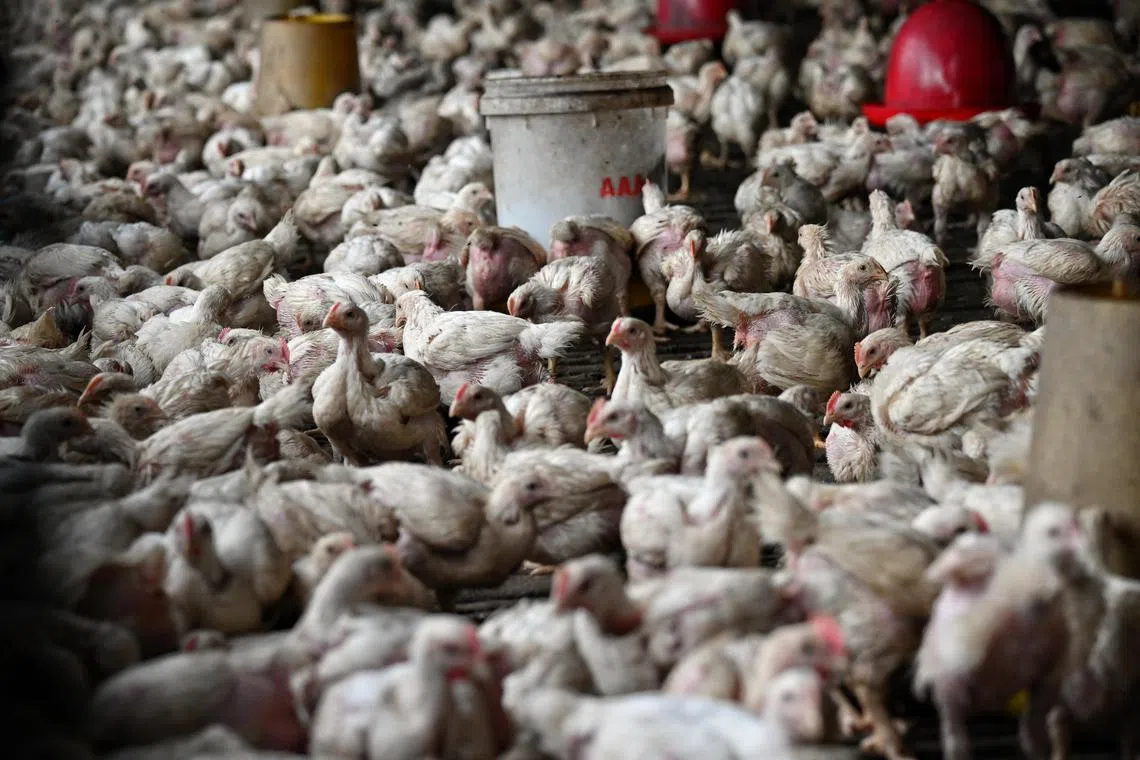Malaysia to lift ban on chicken exports from July 1
Sign up now: Get ST's newsletters delivered to your inbox

Malaysia is also allowing chicken imports from recognised source countries such as Brazil, China, Denmark and Thailand.
PHOTO: ST FILE
Follow topic:
KUALA LUMPUR - Malaysia will lift a ban on the export of chicken
Lifting the chicken ban would enable farmers to earn revenue from the export market and facilitate cash flow into the country, he added.
Datuk Seri Mohamad said poultry producers would be able to export live chicken, dressed chicken and chicken parts, but not day-old chicks.
He said the government would also allow chicken imports from recognised source countries including Brazil, China, Denmark and Thailand.
“As for egg imports, the permitted source countries are Thailand and Ukraine.”
The government on Friday reversed an earlier decision to start floating the prices of chicken and eggs from July 1.
On Thursday, Mr Mohamad had said the subsidies for poultry producers would end after June 30.
But the government announced the day after that it would continue subsidising egg and chicken production beyond July 1, which would allow it to retain price controls on the two food staples.
In a joint statement, the Agriculture and Food Security Ministry (KPKM) and the Domestic Trade and Costs of Living Ministry (KPDN) said: “After considering all aspects, including ensuring the sustainability of the chicken and egg industry, and that the welfare of the public remains protected, the Prime Minister (Anwar Ibrahim) has agreed with KPKM and KPDN’s proposal to continue subsidies and price controls for chicken and egg from July 1, 2023.”
“The decision to continue giving subsidies is to ensure the well-being of the people will be looked after in line with the aspirations of the government,” the ministries added.
The previous government tried to scrap poultry subsidies on July 1, 2022. However, the Cabinet decided against it two days before and elected to raise the ceiling price instead.
Poultry producers have been under sustained pressure over the last two years due to an increase in feed costs, primarily because of supply issues brought about by the Covid-19 pandemic and challenges caused by the Russia-Ukraine conflict.
Last year, the government allocated a total of RM369.5 million (S$108 million) for poultry subsidies. THE STAR/ASIA NEWS NETWORK

